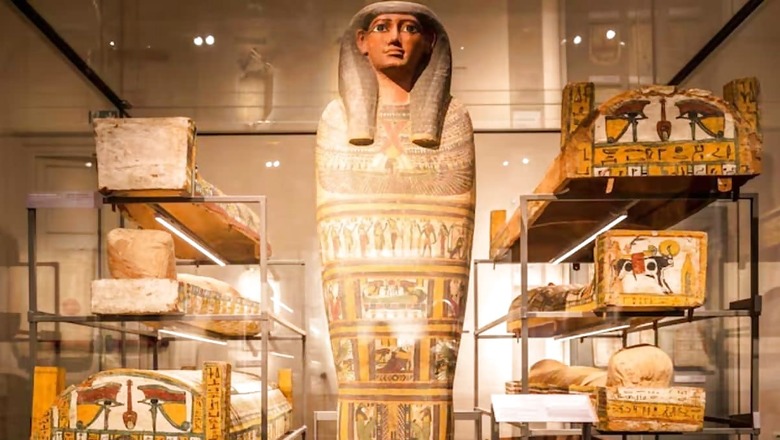
views
The ancient Egyptian civilization has been a source of interest and mystery for us. It is often called the cradle of civilization and is marked by wonders such as pyramids, mummies and a distinctive belief in the afterlife. The ancient Egyptians believed that life continued after death in a spiritual realm, which is why they placed as much importance on funeral rituals as they did on daily life. Mummification was a key part of these rituals, designed to preserve the body so the soul could journey to the afterlife. Tombs were carefully constructed and filled with goods, food, and treasures to ensure comfort and wealth in the next world. The structures, from elaborate tombs to towering pyramids, all held deep symbolic meaning, representing the Egyptians’ hope for eternal life and their devotion to the gods.
Egyptian burial rituals were a surprising combination of religion, culture and mystery. These rituals were not just about keeping the bodies safe, but also about ensuring a safe passage in the afterlife. In ancient Egypt, burial practices varied significantly between the rich and the common people, though some rituals remained consistent. Pharaohs and the elite were entombed in grand pyramids or elaborate tombs, symbols of their power and divine connection to the gods.
These monumental structures reflected their status and ensured their place in the afterlife. In contrast, common people were buried in simpler, less ornate tombs, often with fewer possessions. Despite the differences in burial grandeur, funerary texts, like the Book of the Dead, were important for all. These texts provided guidance and protection, helping the deceased navigate the challenges of the afterlife. Mummification was an important part of Egyptian burial rituals. This process took about 70 days to complete. During this, the internal organs were removed and kept in jars. It was believed that each jar was protected by a different god. The heart was left in the body, while the brain was removed and discarded.
Ancient Egyptians believed that the dead needed their worldly possessions in the afterlife. To ensure luxury, tombs were filled with goods, including furniture, jewellery, food and clothing. Priests played an important role in Egyptian burial rituals. They performed ceremonies to ensure the safe journey of the deceased. The opening of the mouth ceremony was performed to restore the senses of the deceased. The priests recited spells and prayers to protect the deceased from evil spirits




















Comments
0 comment